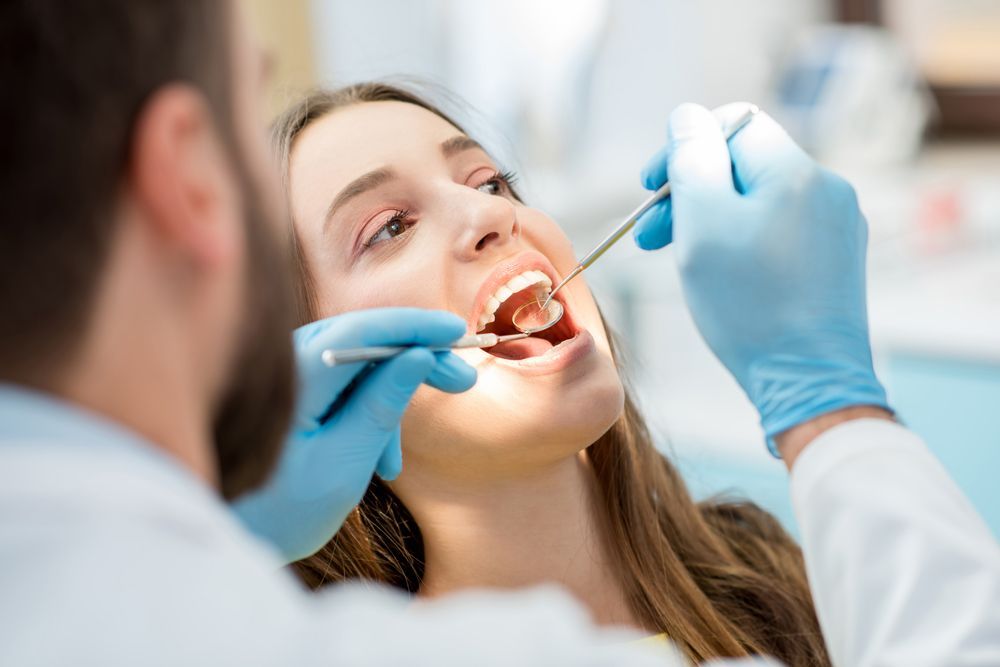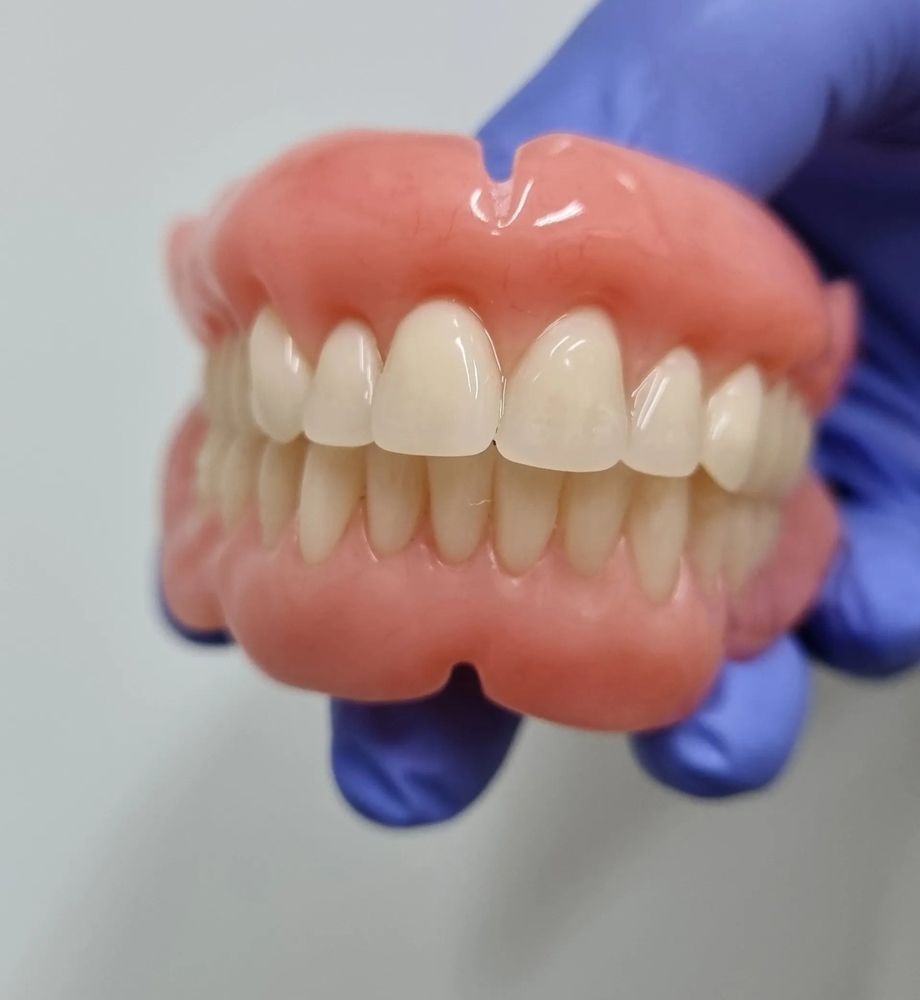8 Foods To Avoid With Dentures
AVOID THESE 8 FOODS FOR LONG LASTING DENTURES
The excellent news about dentures is you'll be able to start eating all your favourite foods again. However, there are still some foods you should handle with care and some to avoid altogether.
The key to living with your new dentures is not deprivation but learning how to adjust your previous eating habits and how to avoid certain foods and how to live with tweaking some foods.
Here's what to consider with certain foods and drinks so you can eat and drink stress-free with your new dentures.
COFFEE
While coffee in small amounts won't hurt your dentures or stain them any more than your natural teeth, it's still a good idea to keep your coffee to the recommended amount per day for good overall health.
As a general rule, its’ been suggested that an average 240-ml cup of coffee offers around 100 mg of caffeine. Several sources suggest that 400 mg of caffeine per day, which is the equivalent of 4 cups of coffee is safe for most healthy adults. Anything more then you could start having health effects such as dizziness, upset stomach, dehydration and dry mouth.
Solution
A better idea could be substituting coffee for decaf or tea and alternating any caffeine drink with water which will naturally wash the dentures and keep you hydrated. Denture wearers need to be careful about keeping the mouth moist; otherwise, a dry mouth can irritate the gums.
POPCORN
Our love affair with popcorn, especially at the movies is very popular. It's an easy mistake to think that a piece of popcorn won't get stuck in dentures like it could with your natural teeth, but the sharp fragments of corn can get lodged easily. Pieces of popcorn lodged beneath the dentures can be extremely irritating and even painful.
Solution
If it's a salty snack you're craving, try veggie chips instead. Some salty snacks also tend to get chewy, which can be hard for dentures and may pull on them. Salt is not good as it makes the mouth dry and denture wearers need to increase their saliva, so it's a good idea to avoid foods high in salt.
HARD AND STICKY LOLLIES
Dentists aren't a fan of chewy, sticky lollies for anyone, but especially for those with dentures: Anything sticky is almost guaranteed to dislodge your teeth.
Solution
A better idea for a sweet treat is soft ice cream. Go ice-creams without nuts or hard bits of sweet extras like caramel.
NUTS
Nuts are similar to popcorn for the same reasons to avoid them. The hard parts of nuts could dislodge and get caught under the dentures, and they could make the dentures unstable over time.
We tend to chew more on one side of the mouth, and because most people only chew a few nuts at a time, naturally you'll favour one side. Chewing on one side more will cause the dentures to become loose over time or one side to flip up.
Solution:
Try olives with no pips. Pitted olive are still salty but very healthy as they contain good oils and fats which help lower cholesterol. Just make sure you definitely buy ones that are pitted. Seedless grapes and berries are also a good healthy snack.
MULTIGRAIN BREAD AND CRACKERS
Breads and crackers that have seeds and grains might be good for your health, but even small poppy seeds are going to get stuck and lodged under your dentures.
Solution
Try breads and crackers that have refined flour and no large seeds. White, brown and sourdoughs are good options but be cautious with loaves of bread that have chewy and crispy crusts.
STEAK AND CHEWY MEATS
Biting into large chunky meats like tough cuts of steak is hard enough with your natural teeth, but with dentures, it can be extremely difficult. Large, tough foods can destabilise the dentures and having to chew hard over the same spot over again can create sore spots and gum irritation.
Solution:
Opt for softer cuts of red meats like a Tenderloin steak which is the most tender steak on the menu. On some restaurant menus, it may be referred to as filet mignon.
Slow-cooked meat is excellent as it softens meat much more than pan-frying or grilling options and always cut up your pieces into smaller portions. Chicken and fish are also softer meats easier to handle.
RAW VEGETABLES AND FRUITS
Fresh vegetables and fruits are always recommended for a good healthy diet, but you may now have to adjust your way of eating them. Hard fruits and vegetables like carrots, corn on the cob, and apples should be avoided in their raw state. Biting on these hard foods can put too much pressure on your dentures.
Solution
Softer vegetables and fruits and cooked options are all options to keep them in your diet. Pureeing whole fruit and mashing cooked vegetables are ways to keep them on your regular meal plans. Smoothies are also a great way to incorporate your favourite fresh fruits and vegetables but be mindful of seeds and pips.
NUT BUTTERS
Peanut butter and other nut butters can be very sticky, and while they can be worked off dentures with your tongue, it can be difficult.
Solution
Try dips like hummus, tapenades or soft tuna or egg spreads on your favourite breads or crackers if you're looking for a satisfying spread.
GET IN TOUCH FOR ALL YOUR DENTURE NEEDS
The Denture Care Group Sunshine Coast provides a range of denture services, including consultations, full and partial dentures, relines and after-hour emergency repairs.
Utilising an advanced on-site laboratory, our qualified dental prosthetists create and maintain dentures that are designed for practicality and comfort. To book an appointment or find out more information, contact us today!
Read more about how to keep your dentures healthy with our previous blog 4 Signs You Need New Dentures.
Article by
AARON PRYOR
DENTAL PROSTHETIST/MEDICAL DIRECTOR
Aaron is a qualified dental prosthetist with over 15 years’ experience in the dental industry. Aaron comes from a dental background with his father being a reputable dental technician on the Sunshine Coast for over 30 years.







